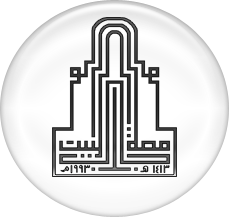| DC Field | Value | Language |
|---|
| dc.contributor.author | عمر عكاشة | - |
| dc.date.accessioned | 2017-12-07T14:37:36Z | - |
| dc.date.available | 2017-12-07T14:37:36Z | - |
| dc.date.issued | 2015-08-22 | - |
| dc.identifier.uri | http://hdl.handle.net/123456789/1319 | - |
| dc.description.abstract | الملخص
يَعْرِضُ الْبَحْثُ لِمَسائِلَ مُحَدَّدَةٍ في اسْتِعْمالِ ثَلاثٍ مِنَ الأَدَواتِ الْمُضطَّلِعَةِ بِالرَّبْطِ في الْجُمْلَةِ الْعَرَبِيَّة، هِيَ: (لامُ الْعِلَّة)، وَ(مِنْ شَأْنِهِ)، وَ(عِنْدَما). وَفي تَفْصيلِ الْمَسْأَلَةِ الأولى، تَبَيَّنَ لِلْباحِثِ ما دَعاهُ إِلى عَدِّ (لامِ الْعِلَّةِ) ثَلاثَ لاماتٍ في الْعَرَبِيَّة، تَعودُ اثْنَتانِ مِنْها إِلى (لامِ الْعِلَّةِ الْغَرَضِيَّة). وَأَمّا الْمَسْأَلَةُ الْمَبْحوثَةُ ثانِياً، فَالْمَسْعى مَرْكوزٌ فيها حَوْلَ الدّاعي إِلى تَخَلُّقِ الأَداةِ (مِنْ شَأْنِهِ/مِنْ شَأْنِهِ أَنْ) في التَّرْكيبِ الْعَرَبِيّ، ذلِكَ أَنَّ بِالْمُكْنَةِ الاسْتِغْناءَ عَنْها بِكُلِّ سُهولَةٍ في طائِفَةٍ مِنَ التَّراكيب. وَأَمّا الْمَسْأَلَةُ الثّالِثَةُ فَتَرْتَدُّ إِلى الأَداةِ (عِنْدَما)، حَيْثُ يُحاوِلُ الْبَحْثُ تَجْلِيَةَ إِنْ كانَ الإِسْنادانِ الْمُلازِمانِ لِـ(عِنْدَما) آتِيَيْنِ وفقاً لِتَرْتيبٍ مُعَيَّنٍ أَمْ لا.
الْكَلِماتُ الدّالَّة: (الأَدَوات، أَدَوات الرَّبْط، لامُ التَّعْليل، لامُ السَّبَب، لامُ الْغَرَض، أَدَواتُ النَّتيجَة، مِنْ شَأْنِه، أَدَوات التَّزامُن، عِنْدَما، الْمَصْدَرُ الصَّريح، الْمَصْدَرُ الْمُؤَوَّل).
Abstract
The main objective of this study was to present some specific cases in the utilization of three conjunction particles in Arabic phrases, and these were: Laam >Al-<Ella (لام العلّة), Men ša>nihi (من شأنه) and <Endamaa (عندما). In providing a detailed description in the first issue, the researcher found that Laam >Al-<Ella (لام العلّة) can be counted as three Laams in Arabic, two of them are referred to the Laam of purpose (لام الغرض). As for the second issue, the main objective of it was the motive for the particle structure (Men ša>nihi /من شأنهMen ša>nihi >An من شأنه أنْ) in Arabic structure as can be easily omitted in some of the language structures. As for the third issue, it is mainly concerned with the particle (<Endamaa), and whether the two accompanying supporters for this particle come in a specific order or not.
Key words: (Particles, Conjunction Particles, Laam of Cause, Laam of Purpose, Particles of Result, Men ša>nihi, Synchronous particles, <Endamaa, Explicit infinitive, Referred infinitive). | en_US |
| dc.subject | Key words: (Particles, Conjunction Particles, Laam of Cause, Laam of Purpose, Particles of Result, Men ša>nihi, Synchronous particles, <Endamaa, Explicit infinitive, Referred infinitive). | en_US |
| dc.title | تَحْقيقٌ في اسْتِعْمالِ ثَلاثٍ مِنَ أَدَواتِ الرَّبْطِ في اللُّغَةِ الْعَرَبِيَّة (لام الْعِلَّة)، وَ(مِنْ شَأْنِهِ)، وَ(عِنْدَما). | en_US |
| dc.type | Other | en_US |
| Appears in Collections: | المجلد (22)، العدد(1)، 2016م
|

